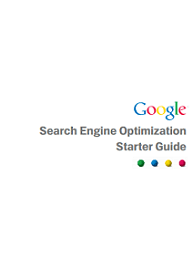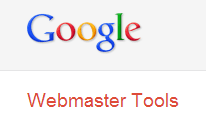SEOs come in all shapes and forms. Some of us are full-time professionals focused on every single facet of SEO. Of course, with Google leading the pack by a mile in North America, it’s the most important search engine to optimize for.
Not to discount Bing or Yahoo, but they account for less than 20% of the overall search volume.
On the other hand, most of our readers are wearing multiple hats, of which SEO is only one.
Often, the best answer is to bring in someone like Return On Now to handle the SEO for you.
Other times, you want a quick answer without having to ping an expert or pay for it.
To cover the needs of both audiences, I pulled together this Google SEO Guide, a list of resources that can help you learn SEO for Google.
This is ideal for newbies to learn, and for veterans to get refreshers.
Heck, even knowledgeable SEOs might be able to garner a lesson or two by reading the below.
 Google Search Engine Optimization Starter Guide
Google Search Engine Optimization Starter Guide
View the Google SEO Starter Guide PDF
This is probably the best possible starting point for you when you make your first foray into search engine optimization.
It covers all of the basics that you need to keep in mind, and has even been expanded to cover basic mobile device SEO in recent months.
This document overviews all of the on-page, how to manage crawlers / robots / spiders, how to manage site structure and usability, Google’s accepted ways to promote your website, and ideas on how to benchmark your SEO efforts.
Google Webmaster Tools Guide to SEO
http://support.google.com/webmasters/bin/answer.py?hl=en&answer=35291
This is the second place I’d turn as a new SEO or webmaster, and a link I would bookmark for reference for intermediate practitioners.
The page linked above sets the stage for SEO itself and how to choose an SEO provider.
I recommend that anyone hiring an outside SEO professional should read this page and understand it before picking a vendor.
It helps fend off all the snake oil salespeople that have given the SEO industry a bad name at times.
Take note of the right and left sidebars, that each link to different related content.
You can find awesome information on those pages, including more advanced direction on the on-page piece, how to better manage design and usability, and more technical topics like managing crawlers and getting new content indexed.
 Search Engine Land’s Guide To SEO
Search Engine Land’s Guide To SEO
http://searchengineland.com/guide/seo
I am a huge fan of Search Engine Land’s approach to teaching SEO.
This content is also available as an ebook for members, but for others, they have made all of the chapters available as web pages.
The nice thing about this is that it’s a view from an SEO, rather than from Google.
It covers all of the important factors that influence the ranking algorithm, then goes into more advanced topics such as social media for SEO, Authority, dynamic content, and managing backlinks and anchor texts.
Google SEO Guide On Multivariate and A/B Testing
http://googlewebmastercentral.blogspot.com/2012/08/website-testing-google-search.html
Many marketers fail to see the value of doing split testing for website content, thinking that A/B tests are for email marketing, PPC, and other outbound campaigns.
That is a short-sighted view of the internet as a whole.
Google recommends that good SEOs manage ongoing testing to identify the best performing content in a scientific fashion.
They provide solid tools for Content Experiments, and you also have the option of using more advanced tools such as built in functionality of your CMS, a landing page solution like Liveball or Unbounce, or Test & Target by Adobe.
It is worth understanding their approach though, no matter what testing tool you prefer.
Also read Search Engine Land’s spin on the above at:
http://searchengineland.com/googles-seo-guide-on-ab-multivariate-testing-130093
Wordstream’s Google SEO Guide
http://www.wordstream.com/google-seo-guide
After providing content on how to succeed at SEO over the course of several years, Keyword Research Tool vendor Wordstream pulled it all together into this one SEO Guide.
Although it does not go as deep as the Search Engine Land guide above, it does a decent job of covering keyword research, basic link-building, and generating content for SEO benefit.
I always prefer to have as many viewpoints as possible in my back pocket, so take a little time to review their opinions and consider your stance on all of these topics and techniques.
Tommy Landry
Latest posts by Tommy Landry (see all)
- How to Use AI to Accelerate Content Creation Without Losing Authenticity - January 6, 2026
- B2B SEO in 2025: Winning Visibility in AI-Curated Buyer Journeys - December 16, 2025
- Local SEO Meets AEO and GEO: How AI Platforms Read Local Authority Signals - December 9, 2025






